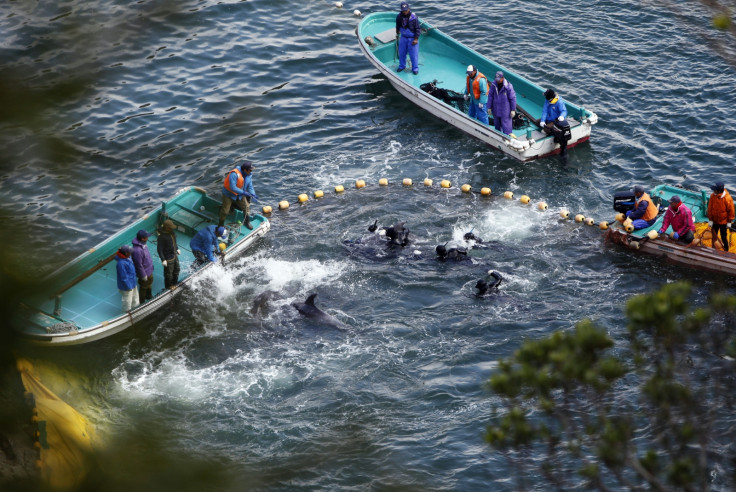Japanese dolphin hunts to begin as thousands set to demonstrate around the world
A London demonstration will take place on Thursday 1 September at noon.

Thousands are set to join protests around the world as the infamous dolphin hunting season starts up again in Taiji, Japan. The annual hunt sees dolphins herded into a cover near the Japanese town and either killed for meat or captured to be sold to dolphinariums and aquatic parks.
Around 50 demonstrations are planned internationally as part of Japan Dolphins Day 2016 – organised by Dolphin Project, a charity set up by Ric O'Barry, a former dolphin trainer who worked on the Flipper films and had a starring role in The Cove.
O'Barry was deported from Japan in early 2016 after being accused of lying in interviews and having links to the anti-whaling group, Sea Shepard. O'Barry's son said that the charges were "trumped up" and "a desperate attempt by the Japanese Government to hide the atrocities in Taiji".
According to Dolphin Project, the official government quota is 1,820 dolphins of different species – with 150 bottlenose dolphins to be captured for marine parks around the country and world. "They used to do this in Futo and Iki Island too," said O'Barry, "the only reason they stopped is because they killed them all. I'm afraid the same thing is going to happen in Taiji. It's genocide."
O'Barry is joining the London demonstration, set to take place at noon on 1 September. Over 500 people have said they will attend the march from Cavendish Square Gardens to the Japanese Embassy, with over 800 registering interest.
During the hunt, metal pipes are lowered into the water and struck to disrupt the dolphin's sonar and help them be herded into a small bay area which is closed off by nets. The dolphins are left to calm before they are killed using a metal pin that severs its brainstem.
Along with calls of cruelty, there have been suggestions that the dolphin meat from Taiji is unsuitable for consumption because of high levels of mercury.
© Copyright IBTimes 2024. All rights reserved.






